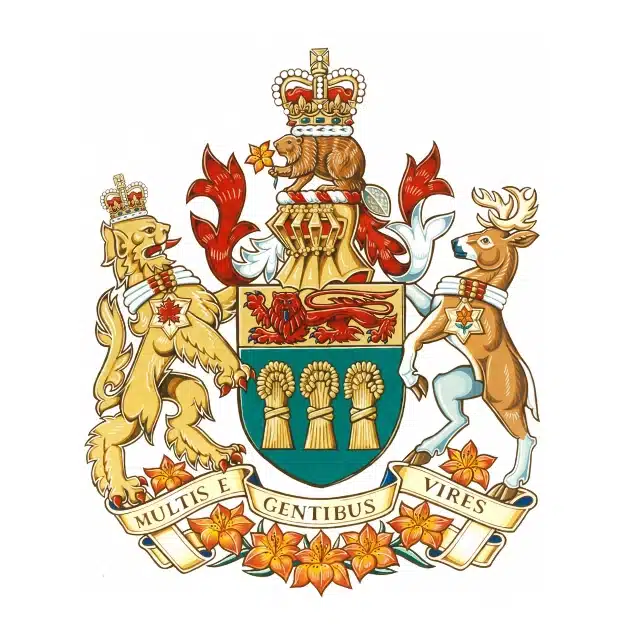Family Law
Court of King's Bench | SaskatchewanCourts of Saskatchewan
Family Law
Court of King’s Bench
In 1994, The Queen’s Bench (Family Law Division) Amendment Act established a Family Law Division, which handles all family law matters. There are judges of the Court of King’s Bench appointed specifically to sit as judges of the Family Law Division. At present these judges are located in Regina, Saskatoon and Prince Albert.
The Court of King’s Bench deals with all family law matters under The Divorce Act, including:
- separation and divorce;
- custody and access;
- child support;
- spousal support; and
- variations of custody, access, child support and spousal support orders.
The Court of King’s Bench also deals with matters of provincial jurisdiction as follows:
- child protection hearings under The Child & Family Services Act;
- adoption applications under The Adoption Act
- custody, access and paternity applications under The Children’s Law Act
- child and spousal support applications under The Family Maintenance Act
- division of family property under The Family Property Act
- domestic violence matters under The Victims of Interpersonal Violence Act
- estate matters involving dependent children under The Family Maintenance Act
- enforcement of maintenance under The Enforcement of Maintenance Orders Act
Some of these provincial jurisdiction matters can also be dealt with at the Provincial Court in communities where the Court of King’s Bench does not sit.
Family Justice Services Branch
The Family Justice Services Branch of the Ministry of Justice provides a variety of services for people dealing with family law matters. This branch does not provide legal services or legal advice. It is recommended that everyone involved in a family law matter consult a lawyer.
The Family Justice Services Branch provides the following:
- The Maintenance Enforcement Office registers and enforces support orders and agreements (both child and spousal support). Enrolment in the program is voluntary. The Office receives and processes payments and takes enforcement action if payments are not made. It also works with reciprocating jurisdictions and their support enforcement programs where one party lives outside Saskatchewan.
- The Inter-Jurisdictional Support Orders Unit looks after registration of orders, applications for support and applications for variation of support in cases where one of the parties lives outside of Saskatchewan. The Unit also provides information on inter-jurisdictional legislation and procedures.
- The Social Work Unit prepares court-ordered custody and access assessments. This unit also manages the Supervised Access and Exchange Program.
- The Parent Education Unit is responsible for the delivery of the Parent Education Program across Saskatchewan. It is aimed at providing parent education and information to people dealing with family breakdown. The unit also provides information on options for resolving family disputes.
- The Family Law Information Centre and Support Variation Project (FLIC) provides information to the public on a wide variety of family law issues, including parenting, child and spousal support, and family property division. It also provides information about options for resolving family law disputes, and assists in locating information about various service providers, including lawyers, mediators, collaborative lawyers, parenting coordinators, and family arbitrators. The FLIC assists people who are applying to court in identifying the correct court forms, and has created several self-help kits. It can also provide referrals to appropriate family justice services, or services such as counselling, debt counselling, and family violence services.
- The Child Support Service (formerly the child Support Recalculation Service) helps families calculate and recalculate child support amounts without having to go to family court. Any parent or guardian who needs to determine child support amounts may apply for Child Support Calculation. Parents who already receive child support may apply for recalculation after six months based on a change in income. There is no cost to apply.
- The Early Family Dispute Resolution support service provides information about the early family dispute resolution court requirement and where it is in effect, and includes contact lists for the family mediators, family arbitrators, parenting coordinators, and collaborative lawyers recognized to satisfy this requirement.
- The Family Matters program assists families experiencing separation and divorce by providing information, support, and guidance, including information about dispute resolution options.
Options for Victims of Domestic Violence
The Victims of Interpersonal Violence Act provides emergency intervention orders, victims’ assistance orders and warrants of entry to assist victims of domestic violence. These remedies can provide protection or assistance to anyone who is subject to domestic violence, defined as one or more of the following:
- forced confinement;
- sexual abuse;
- acts or threats that cause reasonable fear of bodily harm or damage to property; or
- intentional or reckless acts or omissions that cause bodily harm or damage to property.
To apply for an order or warrant, contact the police, a lawyer, Victims Services units of the police, First Nations’ community caseworkers or Mobile Crisis Services. For more information see the Ministry of Justice’s Interpersonal Violence and Abuse Programs information page.

COURT RESOURCES
EXTERNAL RESOURCES
SOCIAL MEDIA
